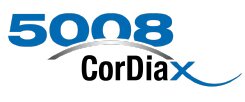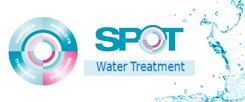Home / FlashMed
FlashMed
| Titolo | On-line Hemodiafiltration Does Not Induce Inflammatory Response in End-stage Renal Disease Patients: Results From a Multicenter Cross-over Study |
| Autore | Lajos R. Vaslaki, Klara Berta, Lajos Major, Viktoria Weber, Christoph Weber, Ralf Wojke, Jutta Passlick-Deetjen, Dieter Falkenhagen |
| Referenza | Artificial Organs - 2005 Volume 29 (5): 406-412 |
| Contenuto | Background: On-line hemodiafiltration (HDF) represents the supreme blood purification modality for end-stage renal disease (ESRD) patients. Large-volume infusion of on-line prepared substitution fluid may, however, expose patients to inflammatory contaminants. As a result, on-line HDF might aggravate chronic inflammation, which correlates with malnutrition, cardiovascular disease, and mortality among ESRD patients. Methods: In a multicenter cross-over study, 27 ESRD patients were randomly assigned to treatment with on-line HDF and low-flux hemodialysis (HD). After 6 months, patients were crossed to the other treatment modality, and treatment continued for another 6 months. Both on-line HDF and low-flux HD were conducted with polysulfone membranes and ultrapure dialysis fluid. Samples were drawn at the end of each treatment period. Results: Inflammatory parameters were elevated in the study population when compared to healthy controls. Induction of interleukin-1 receptor antagonist (IL-1Ra) and tumor necrosis factor (TNF-) was comparable for on-line HDF and low-flux HD, and there was no intradialytic increase in cytokine production. As a result, interleukin-6 (IL-6) plasma levels did not differ significantly between the two treatment modalities. Similarly, no difference between on-line HDF and low-flux HD was observed for C-reactive protein (CRP) and albumin. Markers of endothelial cell activation (soluble intercellular and vascular cell adhesion molecules sICAM-1 and sVCAM-1) as well as the cardiovascular risk marker cardiac troponin T (cTnT) remained elevated compared to healthy subjects, but showed no difference between the two treatment modalities. Conclusions: On-line HDF, as the most effective renal replacement therapy, does not provoke inflammatory response and is both safe and highly biocompatible. |
| Data | 05.05.2005 |
| Lista completa |
|







